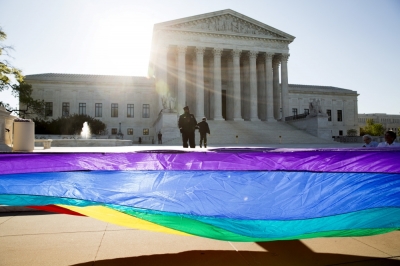Justice Anthony Kennedy on 5 Supreme Court Rulings: Prayer, Religious Liberty, Gay Marriage
Obergefell v. Hodges (2015)

Building upon earlier rulings in favor of homosexuality legalization and gay marriage, Kennedy authored the opinion for the 5-4 decision legalizing same-sex marriage nationwide.
The ruling overturned a lower court decision from the Sixth Circuit Court of Appeals, and effectively declared 30 state level voter-approved same-sex marriage bans unconstitutional.
"The Constitution promises liberty to all within its reach, a liberty that includes certain specific rights that allow persons, within a lawful realm, to define and express their identity," concluded Kennedy.
"The petitioners in these cases seek to find that liberty by marrying someone of the same sex and having their marriages deemed lawful on the same terms and conditions as marriages between persons of the opposite sex."
Kennedy was joined by Justices Ruth Bader Ginsburg, Steven Breyer, Sonia Sotomayor, and Elena Kagan. In his opinion, Kennedy also explained that social conservatives still had the right to offer objections to same-sex marriage.
"Finally, it must be emphasized that religions, and those who adhere to religious doctrines, may continue to advocate with utmost, sincere conviction that, by divine precepts, same-sex marriage should not be condoned," continued Kennedy.
"The First Amendment ensures that religious organizations and persons are given proper protection as they seek to teach the principles that are so fulfilling and so central to their lives and faiths, and to their own deep aspirations to continue the family structure they have long revered. The same is true of those who oppose same-sex marriage for other reasons."




























